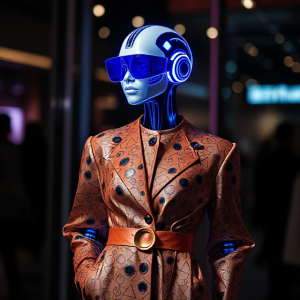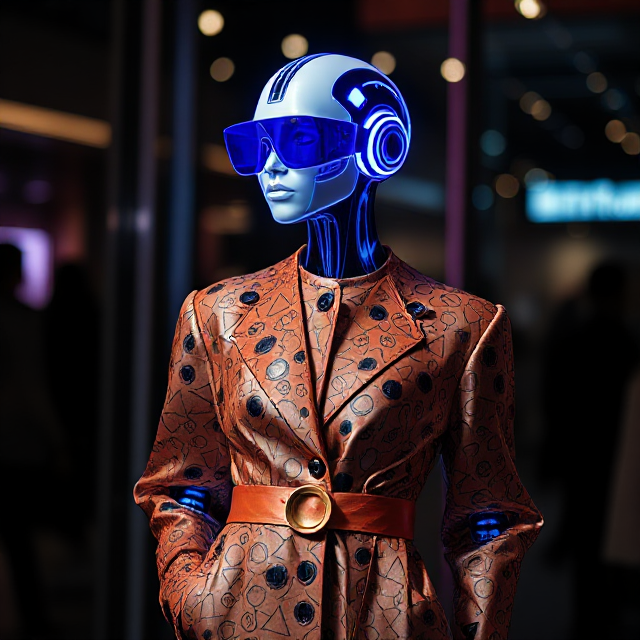
The fashion industry has always been at the forefront of innovation, embracing new technologies to enhance creativity, efficiency, and customer engagement. In recent years, artificial intelligence (AI) has emerged as a game-changer in fashion marketing, enabling brands to leverage data, automation, and personalization to create impactful campaigns and improve consumer experiences.
The Role of AI in Fashion Marketing
AI in fashion marketing encompasses a wide range of applications, from data analysis to personalized recommendations and automated content creation. By harnessing AI, fashion brands can enhance customer experience, optimize marketing strategies, and improve decision-making processes. Here are some key areas where AI is transforming fashion marketing:
1. Personalized Customer Experiences
AI-powered algorithms analyze consumer data, including browsing history, purchase patterns, and social media interactions, to offer personalized product recommendations. This enables brands to provide a tailored shopping experience, increasing customer satisfaction and boosting conversion rates.
2. AI-Powered Chatbots and Virtual Assistants
Fashion brands are increasingly using AI chatbots and virtual assistants to interact with customers in real-time. These AI-driven tools provide instant customer support, answer queries, suggest outfits, and help consumers navigate through product catalogs, significantly improving user engagement and customer service.
3. Predictive Analytics for Trend Forecasting
AI enables brands to analyze vast amounts of data from fashion runways, social media, and consumer behaviors to predict upcoming trends. This allows designers and retailers to make informed decisions about future collections, ensuring they meet consumer demands and stay ahead of competitors.
4. Visual Search and Image Recognition
AI-powered visual search technology allows customers to upload images of clothing items they like and find similar products in a brand’s inventory. This enhances the shopping experience and makes it easier for consumers to discover and purchase products they desire.
5. Automated Content Creation and Social Media Management
AI tools can generate engaging content, including product descriptions, social media posts, and marketing copy. Additionally, AI-powered analytics help brands determine the best times to post content and identify trending topics, maximizing engagement and reach.
6. Influencer Marketing Optimization
AI can analyze influencer performance metrics, audience demographics, and engagement rates to help brands identify the most effective influencers for their campaigns. This ensures that marketing efforts reach the right audience, increasing brand visibility and ROI.
7. AI in Supply Chain and Inventory Management
AI-powered predictive analytics assist in inventory management by analyzing demand patterns and optimizing stock levels. This reduces overproduction and waste, making fashion brands more sustainable while improving profitability.
8. Virtual Try-Ons and Augmented Reality (AR)
AI-driven virtual try-on technology and AR applications allow consumers to see how clothing items will look on them before making a purchase. This reduces return rates and enhances customer confidence in online shopping.
The Future of AI in Fashion Marketing
As AI continues to evolve, its role in fashion marketing will expand further, incorporating even more advanced applications such as:
- Hyper-personalization: AI will refine its ability to predict consumer preferences with greater accuracy.
- AI-generated fashion designs: Machine learning algorithms will create original designs based on data-driven insights.
- Sustainability enhancements: AI will help brands track and reduce their environmental impact by optimizing material usage and production processes.
- Enhanced virtual shopping experiences: AI-powered virtual reality (VR) shopping environments will offer consumers a fully immersive online shopping experience.
AI is revolutionizing fashion marketing by enhancing customer experiences, optimizing campaigns, and enabling data-driven decision-making. Brands that integrate AI into their marketing strategies will gain a competitive edge, improving efficiency, sustainability, and consumer engagement. As AI continues to advance, it will redefine the way fashion brands interact with their audiences, ensuring a more personalized, seamless, and innovative shopping experience for all.
